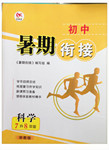题目内容
Learning to Accept
I learned how to accept life as it is from my father. 1 , he did not teach me acceptance when he was strong and healthy, but rather when he was 2 and ill.
My father was 3 a strong man who loved being active, but a terrible illness 4 all that away. Now he can no longer walk, and he must sit quietly in a chair all day. Even talking is 5 . One night, I went to visit him with my sisters. We started 6 about life, and I told them about one of my 7 . I said that we must very often give things up 8 we grow --- our youth, our beauty, our friends --- but it always 9 that after we give something up, we gain something new in its place. Then suddenly my father 10 up. He said, “But, Peter, I gave up 11 ! What did I gain?” I thought and thought, but I couldn’t think of anything to say. 12 , he answered his own question: “I 13 the love of my family,” I looked at my sisters and saw tears in their eyes, along with hope and thankfulness.
I was also 14 by his words. After that, when I began to feel irritated (愤怒的) at someone, I 15 remember his words and become 16 . If he could replace his great pain with a feeling of love for others, then I should be 17 to give up my small irritations. In this 18 , I learned the power of acceptance from my father.
Sometimes I 19 what other things I could have learned from him if I had listened more carefully when I was a boy. For now, though, I am grateful for this one 20 .
1. A.Afterwards B.Therefore C.However D.Meanwhile
2. A.tired B.weak C.poor D.slow
3. A.already B.still C.only D.once
4. A.took B.threw C.sent D.put
5. A.impossible B.difficult C.stressful D.Hopeless
6. A.worrying B.caring C.talking D.asking
7. A.decisions B.experiences C.ambitions D.beliefs
8. A.as B.since C.before D.till
9. A.suggests B.promises C.seems D.requires
10. A.spoke B.turned C.summed D.opened
11. A.something B.anything C.nothing D.everything
12. A.Surprisingly B.Immediately C.Naturally D.Certainly
13. A.had B.accepted C.gained D.enjoyed
14. A.touched B.astonished C.attracted D.warned
15. A.should B.could C.would D.might
16. A.quiet B.calm C.Relaxed D.happy
17. A.ready B.likely C.free D.able
18. A.case B.form C.method D.way
19. A.doubt B.wonder C.know D.guess
20. A.award B.gift C.lesson D.word
1-5 CBDAB 6-10 CDACA 11-15 DACAC 16-20 BDDBB

 鹰派教辅衔接教材河北教育出版社系列答案
鹰派教辅衔接教材河北教育出版社系列答案 初中暑期衔接系列答案
初中暑期衔接系列答案We know the famous ones—the Thomas Ediso ns and the Alexander Graham Bells —but what about the less famous inventors? What about the people who invented the traffic light and the windshield wiper(雨刮器)?Shouldn’t we know who they are?
ns and the Alexander Graham Bells —but what about the less famous inventors? What about the people who invented the traffic light and the windshield wiper(雨刮器)?Shouldn’t we know who they are?
Joan Mclean think so. In fact, Mclean, a professor of physics at Mountain University in Range, feels so strongly about this matter that she’s developed a course on the topic. In addition to learning “who” invented “what”, however, Mclean also likes her students to learn the answers to the “why” and ”how” questions. According to Mclean,” When students learn the answers to these questions, they are better prepared to recognize opportunities for inventing and more motivated to give inventing a try.”
So, just what is the story behind the windshield wiper? Well, Mary Anderson came up with the idea in 1902 after a visit to New York City. The day was cold and st ormy, but Anderson still wanted to see the sights, so she jumped aboard a streetcar. Noticing that the driver was struggling to see through the snow covering the windshield, she found herself wondering why there couldn’t be a built-in device for cleaning the window. Still wondering about this when she returned home to Birmingham, Alabama, Anderson started drafting out solutions. One of her ideas, a lever(操作杆)on the inside of a vehicle that would control an arm on the outside, became the first windshield wiper.
ormy, but Anderson still wanted to see the sights, so she jumped aboard a streetcar. Noticing that the driver was struggling to see through the snow covering the windshield, she found herself wondering why there couldn’t be a built-in device for cleaning the window. Still wondering about this when she returned home to Birmingham, Alabama, Anderson started drafting out solutions. One of her ideas, a lever(操作杆)on the inside of a vehicle that would control an arm on the outside, became the first windshield wiper.
Today we benefit from countless inventions and innovations,It’s hard to imagine driving without Garrett A. Morgan’s traffic light. It’s equally impossible to picture a world without Katherine J. Blodgett’s innovation that makes glass invisible, Can you picture life without clear windows and eyeglasses?
【小题1】
By mentioning “traffic light” and “windshield wiper”, the author indicates that countless inventions are .
| A.beneficial, because their inventors are famous |
B.beneficial, though their inventors are less fa mous mous |
| C.not useful, because their inventors are less famous |
| D.not useful, though their inventors are famous |
Professor Joan McLean’s course aims to_____.
| A.add colour and variety to students’ campus life |
| B.inform students of the windshield wiper’s invention |
| C.carry out the requirements by Mountain University |
| D.prepare students to try their own invention |
Tommy Lee’s invention of the unbreakable umbrella was _________.
| A.not eventually accepted by the umbrella producer | |
| B.inspired by the story behind the windshield wiper | C.due to his dream of being caught in a rainstorm |
| D.not related to Professor Joan McLean’s lectures |
Which 0f the following can best serve as the title of this passage?
A How to Help Students to Sell Their Inventions to Producers?
B How to Design a Built-in Device for Cleaning the Window?
C Shouldn’t We Know Who Invented the Windshield Wiper?
D Shouldn’t We Develop Invention Courses in Universities?